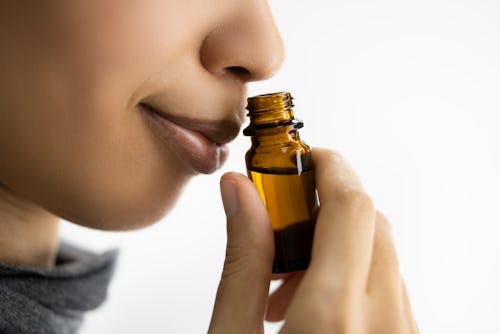We may finally know why some people with COVID lose their sense of smell
Future treatment might even be as straightforward as a cream or spray.

We’re all familiar with the tell-tale signs of COVID-19. Those affected by the virus have likely experienced some combination of chills, body aches, brain fog, and arguably the most puzzling (and longstanding) symptom: a sustained loss of smell. The latter has remained a mystery since the inception of COVID — until now. According to a new study published in the journal Science Translational Medicine, a loss of smell that persists long after recovery from COVID has everything to do with an unusual immune response in the olfactory system.
For the study, researchers looked at biopsied tissue from the nasal lining of 24 COVID patients; the findings from nine of those patients who had lost their sense of smell for more than four months was the key to solving the puzzle. Researchers found that the tissue from the smaller study group contained T-cells (which help the body fight infections) that had seemingly taken over parts of the nasal lining, where smell nerve cells are found.
The T-cells were producing a substance linked to inflammation, which in turn attacked the support cells that protect the olfactory sensory neurons, explained Dr. Bradley Goldstein, a study co-author and sinus surgeon at Duke University, per The Wall Street Journal. This immune response in these nine patients had persisted months after they had recovered from the virus.
As of now, there’s no official treatment for this post-COVID issue that affects about 15 million people globally (though many TikTokers swear by the “burned orange” trick); that will require further research, Dr. Goldstein said. That said, gaining insight into the cause is a crucial step in getting to that point — and the scientists responsible for shedding light on this mystery symptom are optimistic that a clinically-backed remedy will become available in the future. It might even be as straightforward as a cream or spray that helps block the unwelcome immune response, thanks to how easy it is for us to access our nasal passages, The Guardian reported.
“We are encouraged by these findings and are hopeful that new treatments may emerge,” Dr. Goldstein said.